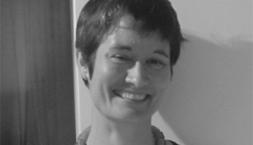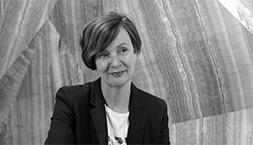Professor in Residence, Department of Architecture, GSD, Harvard University, Cambridge MA, USA
Dean, Graduate School of Design, Harvard University, Cambridge MA, USA
Sarah Whiting is the William Ward Watkin Professor and Dean of the Rice School of Architecture. Previously, she taught at Princeton University, Harvard's Graduate School of Design, the Illinois Institute of Technology, the University of Kentucky, the University of Florida. As a teacher, writer, and designer, her work revolves around architecture’s catalytic relationship to politics, economics, and society, focusing especially on the modern subject (individual as well as collective) and the way that this subject affects and is affected by architecture and the city. Whiting is particularly interested in the nature of public life as it is currently being reformulated in the buildings and urbanisms of the twenty-first century.
Whiting is a partner, along with Ron Witte, of WW, an architectural practice that is currently completing the Golden House in Princeton, NJ, and the design of the Drama Division at the Juilliard School in Manhattan. WW has won or been finalists in numerous design competitions, including the San Jose State University Museum of Art and Design and the Arts and Athletics Building for St. Francis High School in Louisville, Kentucky, as well as urban design competitions for the Toronto Central Waterfront and the San Diego Harbor. Sarah’s previous experience includes working for Peter Eisenman and also the Office for Metropolitan Architecture with Rem Koolhaas, where she was a designer on the Euralille master plan.
Whiting's writings on urban and architectural theory have been widely published in journals and anthologies; in addition to the book, Beyond Surface Appeal: Literalism, Sensibilities, and Constituencies in the Work of James Carpenter (Harvard University Press, spring 2010), she is currently completing a manuscript on the superblock called Superblock Urbanism: Chicago's Elastic Grid. She is also the editor of the new book series, POINT (Princeton University Press)
















